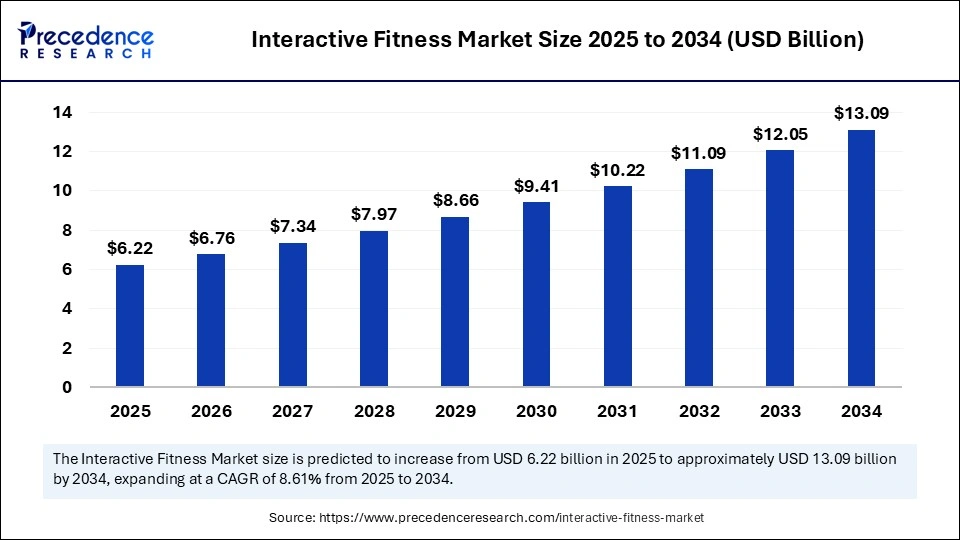The Interactive Fitness Market Enters a New Phase
The interactive fitness market is undergoing a transformative evolution, fueled by AI, portability, and personalization. In a time when consumers prioritize convenience, adaptability, and performance, two major developments have pushed this market into a new frontier: the global expansion of iFIT’s AI Coach (beta) and the launch of Gymijet’s AI-powered portable gym.
These advancements exemplify how fitness technology is becoming smarter, more mobile, and deeply personalized. As we move through 2025, interactive fitness is no longer just about workouts — it’s about intelligent ecosystems that respond to user needs, goals, and lifestyles in real time.
iFIT Inc. Expands Its AI Coach Globally: Taking Personalized Fitness Worldwide
In June 2025, iFIT Inc., a global leader in connected fitness and interactive content, announced that its AI Coach (beta) is now available across 19 countries, including Canada, Australia, France, the UK, and Germany. This expansion is more than geographic; it signifies iFIT’s ambition to become a key force in the interactive fitness market worldwide.
What is the iFIT AI Coach?
The AI Coach is a personalized fitness assistant that uses intelligent algorithms to adjust workouts based on:
-
User performance
-
Recovery patterns
-
Fitness objectives
-
Preferred training styles
Integrated across NordicTrack and ProForm equipment, it delivers a truly interactive experience — one where workouts evolve as the user progresses, mimicking the support of a live personal trainer.
A Strategic Global Rollout
By launching in high-growth regions like Europe, Oceania, and North America, iFIT taps into a global fitness community increasingly seeking interactive and personalized solutions at home and on the go.
According to Precedence Research, the global interactive fitness market size is estimated to exceed around USD 13.09 billion by 2034 increasing from USD 5.73 billion in 2024, with a CAGR of 8.61%.

This international rollout places iFIT in direct competition with other smart fitness giants like Peloton, Apple Fitness+, and Lululemon Studio, particularly in developed economies where digital adoption is high and the hybrid fitness model is mainstream.
Gymijet’s AI-Powered Portable Gym: Redefining Fitness Mobility
In April 2025, Gymijet, an emerging fitness-tech startup, unveiled its AI-powered portable gym system — a sleek, six-pound device that combines isokinetic resistance technology with an AI-driven app. This product is designed for modern users who demand flexibility, precision, and efficiency.
How Gymijet Works
Gymijet uses AI to deliver real-time performance analysis, offering:
-
Precision training guidance
-
Real-time form correction
-
Goal-based adaptive routines
-
Compact design ideal for travelers or remote users
Its mobile app personalizes each session based on form, past performance, and target outcomes, helping users train smarter, not just harder.
Why It’s a Game-Changer
This innovation fits perfectly within the broader interactive fitness market, which values on-demand customization, portability, and real-time feedback. Gymijet’s model is ideal for digital nomads, outdoor athletes, and anyone seeking a consistent high-quality fitness experience anywhere.
With AI as its backbone, Gymijet offers a unique user experience that could disrupt traditional gym-based models and appeal to modern lifestyles increasingly defined by movement, tech, and efficiency.
Trends Driving the Interactive Fitness Market in 2025
The global interactive fitness market is set to grow at a CAGR exceeding 20% between 2024 and 2030, driven by several transformative trends:
1. Personalized Fitness Journeys
Users now expect content and programs that reflect their unique capabilities, goals, and constraints — AI and machine learning make this possible at scale.
2. Hybrid Fitness Models
Combining in-gym, at-home, and on-the-go fitness options gives users flexibility, making brands that offer multiplatform accessibility more competitive.
3. Portable Tech and Smart Equipment
Solutions like Gymijet show a strong demand for portable, intelligent fitness equipment that can be used at home, outdoors, or while traveling.
4. Real-Time Feedback and Analytics
Real-time coaching and data-driven insights improve performance and retention — a key driver behind both iFIT’s AI Coach and Gymijet’s feedback system.
Competitive Landscape: Where iFIT and Gymijet Fit In
iFIT’s Strengths:
-
Large existing user base
-
Integrated hardware ecosystem
-
Global distribution capability
-
Continuous AI feature rollouts
Gymijet’s Strengths
-
Ultra-portable design
-
Real-time form correction
-
Low-friction setup
-
Appeals to non-gym-goers and travelers
Together, they’re setting the standard for what users now expect from interactive fitness platforms — flexibility, intelligence, and personalization.
Challenges and Market Opportunities
While the momentum is strong, the interactive fitness market must navigate several key challenges:
Challenges
-
Privacy and data security in AI-powered systems
-
High device costs for consumers in emerging markets
-
Retention in a crowded app ecosystem
Opportunities
-
AI integration with wearables and nutrition tracking
-
Localized language support for global scalability
-
Cross-industry partnerships (travel, corporate wellness, etc.)
-
Subscription-based business models with gamification features
You can place an order or ask any questions, please feel free to contact at sales@precedenceresearch.com|+1 804 441 9344
Conclusion: A New Chapter in the Interactive Fitness Market
2025 is proving to be a pivotal year for the interactive fitness market. As iFIT rolls out intelligent coaching across the globe and Gymijet reinvents portability with smart, compact tech, the industry is heading into a new era of hyper-personalized, AI-driven, and mobile fitness solutions.
The winners in this space will be those who not only understand consumer needs but also use technology to anticipate, adapt, and deliver — anytime, anywhere.
Also Read: Japan Video Streaming Market